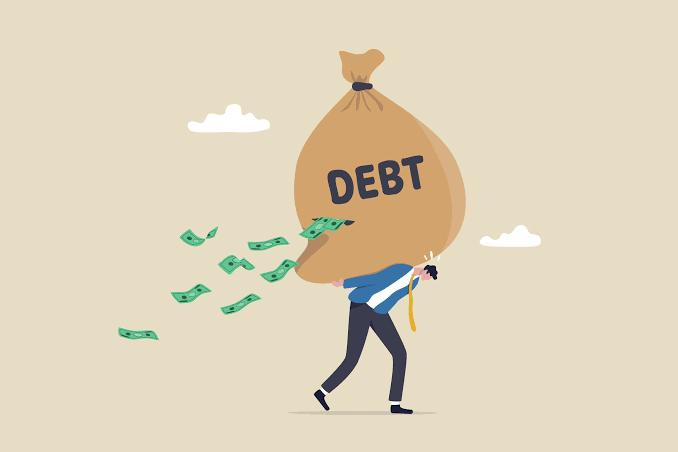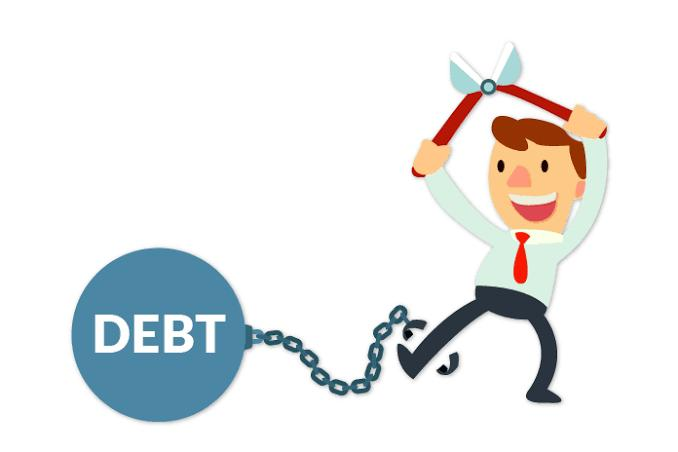Understanding the Lifetime Cost of Debt
Picture yourself leading a life without debt constraints and with complete financial security. A financial journey where the sole concern is finding a fantastic family holiday destination. A life where you can use the money to your advantage and not vice versa. How wonderful would that be?
Understanding the lifetime cost of debt is a real game changer. It will open your eyes to possible financial dilemmas and secure your future. Debt costs you more than you think. The idea that it’s just about swiping your card or signing loan documents is an illusion because the real deal comes with paying the interest.
You may have realized this by now, but the actual cost of debt is measured in what you can’t buy because you are paying off debt. Try to reflect upon yourself – if you weren’t paying off loans, what else could you do with that money? If you weren’t tied up getting something for nothing, what could you own right now? A house? A property? Or you are even able to secure a comfortable retirement. However, all of these will only be possible if your hard-earned money is caught up in paying interest within a month. If you think about it, the money you have borrowed is just a small portion, not even close to half, of the amount you will need to pay.
In this article, I will show you how debt robs your future. We’ll discover how these debts slowly drain not just you but your budget without you noticing and how every penny spent on these strays you away from reaching your financial goals. As we go through, we will additionally unravel the magic that works behind thrift shopping and the underlying advantages if you stop wasting money. Buckle up as we figure out how debts rob the future you have always wanted.
To learn more about debt robbing your future, read on.
I. Understanding the lifetime cost of debt
A little debt won’t hurt, surely. But that’s how it usually starts. You make a teeny tiny purchase on your credit card, and after quite some time, you are thousands of money in debt before you even know it. That is why one must understand the lifetime cost of debt before deciding to have one. Most people know if they have a loan, they make monthly payments.
Further, they also believe they pay interest on the loan. However, it is noteworthy that paying interest doesn’t add value to the item you purchased because, in most cases, you could have saved the money for that item. As a result, you waste the money you paid in interest.
What will debt really cost you?
There’s something about debts that tempts us to keep spending even when we can’t afford the payment. Part of the allure of accumulating debt is that you get emotionally high on the things you can have now without needing to deal with the burden of parting ways with such money. But after some time, you’ll realize that these debts have already made their way onto you, and it won’t be so good by then.
Additionally, according to self. Inc, the average person will pay over 130,000 dollars in a lifetime. And that’s a lot of money to give away. If you look at it over fifty years, it’s twenty-six hundred dollars a month. What could you do with that amount of money if you didn’t spend it paying debts? The answer? Many. You could have saved up and purchased more items. Trust me, it’s worth being proactive to save some of the interest you would be paying. So the next time, do yourself a favor: avoid debt and sock away the money you would have paid in interest.
It should also be familiar to you that with debts, you have less to spend each month. Having debt increases your cost of living in a general sense. You pay interest on the loans, and as a result, it decreases your sustainability. Debts will cost you a lot, no doubt about that. You are better off living as inexpensively as possible; to do that, you must avoid even a slight chance of having debts.
Usually, most people don’t think about how debts affect their lives. But looking at the amount someone will pay in interest is indeed profound. When you pay interest, you are spending money to use money. And I prefer to think of that as giving tenfold of money away. Because that’s what you are doing. You pay a much higher price for the debt you have created. You never know what financial crisis may happen, so you should only mortgage your future with a few obligations.
What else will debt cost you
When you have debts, it’s easy to worry about how you will make your payments or how you’ll keep yourself from accumulating more to make ends meet. The deeper you get into debt, the more chances of having less money to meet your daily needs. Because of this, you are limited to spending on other things – not just when you decide to retire, but simply when you want to use money for amusements like treating yourself out to movies and vacations. Or during Christmas when you surprise your loved ones with gifts. The more debt you have, the higher your monthly payments will be. This means you have to spend less on everything else because you don’t have as much as before the loan.
Savings and investments
Every time you take out a loan or charge something on your credit card, you also unknowingly take the money you may save in the future. Saving money is already tricky, but doing so while having debts can be a substantial task. You need saving; everyone does. Although we can solve a problem without money, most of the time, money plays a crucial role when something unexpected happens, including hospital admission. That is why you need to save instead of using your money on something you can only benefit from temporarily. Start training yourself on having sinking funds. Set an amount to keep daily, or you can add extra money. It doesn’t matter how much; what’s important is that you are saving money.
Paying yourself back
I have heard some people say they were going to pay themselves back. It’s certainly a good thought, but it takes a lot of work to do. If you think about paying yourself back as a bill, you need to make monthly payments. This could be a real financial burden, depending on how much you have paid in interest. And if it’s too much, it may not be possible to do.
Instead of paying yourself back
Rather than paying yourself back, why don’t you start by avoiding debt? You may have an obligation to pay it off now and need to pay it off immediately. As a result, you need more cash to save. So how can you pay yourself if you don’t have the money to? Be wise and act accordingly. Look for ways to save money. In that way, you can pay cash and avoid debt in the future. It’s a matter of spending your money wisely and understanding how accumulating debts can strain your financial goals.
Instead of paying off debt, paying yourself back involves developing a saving habit and reaping the psychological rewards of watching your net worth increase. This prudent financial behavior lays the foundation for a time when financial independence and security are both aspirational goals and attainable realities.
Conclusion
Understanding the lifetime cost of debt is paramount to your overall financial well-being. Every interest payment you make depletes funds that could have been used to improve your financial future. That’s the actual cost of debt: missed opportunities for investing and saving.
In addition, debts cause you to pay more than the item costs. The price you pay for the debt you create comes as interest. The higher the interest, the more you must pay for your debt. And the longer it takes to pay, the higher your debt load will be, causing you to pay more interest. In a survey, it was found that Americans spend approximately $130,000 in interest throughout their entire lives. Instead of going to lenders, this enormous amount of money could have been utilized to finance your children’s education. Now, here are some simple things you can do to lessen the chances of having debts: spend within your means and save more; if the debt you’re planning to have is not fundamentally necessary to your life, avoid it at all costs; also, if possible, buy secondhand items as they cost lesser than the new ones.
Simply put, knowing the lifelong cost of debt encourages more creative spending and saving practices. It comes down to prioritizing long-term financial stability above impulsive, credit-based spending. This knowledge directs you to make decisions that put you in a safe, debt-free financial future.



